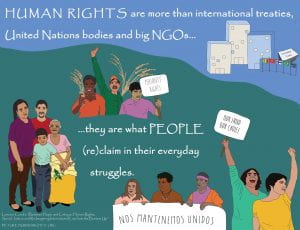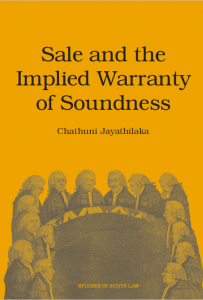By Dr Lorenzo Cotula, Principal Researcher at the International Institute for Environment and Development; Honorary Professor at the University of Strathclyde.
As our demand for material goods drives natural resource extraction, the law reconfigures control over resources to facilitate the production of tradable commodities. Faced with profound social transformations, indigenous and agrarian movements have mobilised human rights to reclaim land, resources and development pathways. This recourse to rights provides distinctive insights on the place of human rights in social justice struggles.
Resource control and international economic law (IEL)
The growing levels and expectations of material consumption in the rich world rest on the large-scale production of commodities for food, energy and raw materials. The correlative expansion and intensification of natural resource extraction has historically involved large-scale mining, petroleum, logging and agribusiness developments, but also more indirect forms of resource control, for example through the integration of small-scale producers into commercial value chains. (more…)









